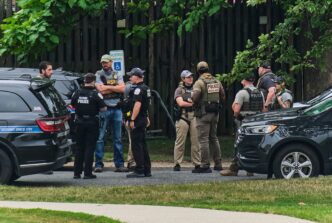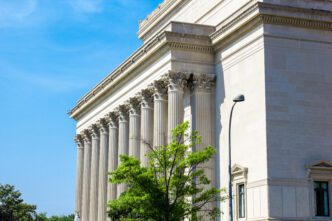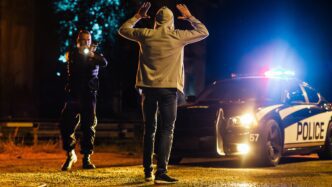Executive Summary
- Archbishop Paul S. Coakley of Oklahoma City has been elected president of the U.S. Conference of Catholic Bishops (USCCB).
- Bishop Daniel E. Flores of Brownsville, Texas, was elected vice president after a close presidential race against Coakley.
- The election followed a recent precedent of elevating the conference secretary to president due to age restrictions affecting the vice president.
- Archbishop Coakley is known for his leadership on various committees and his clear articulation of Catholic doctrine.
- The narrow voting margins suggest a potential lack of broad consensus within the conference compared to past leadership elections.
BALTIMORE — The U.S. Conference of Catholic Bishops (USCCB) has elected Archbishop Paul S. Coakley of Oklahoma City as its new president following a third-ballot runoff election. Bishop Daniel E. Flores of Brownsville, Texas, who was the runner-up in the presidential vote, was subsequently elected as the conference’s vice president.
Election Details and Precedent
Archbishop Coakley secured the presidency with 128 out of 237 votes, representing a 54% majority. Bishop Flores was then elected vice president on the first ballot. The election results continue a recent trend within the conference where the sitting secretary is elevated to the presidency, bypassing the vice president due to age-related eligibility restrictions.
For the second consecutive election cycle, the incumbent vice president was unable to run for president because they could not complete a full three-year term before reaching the mandatory retirement age of 75. This was the case for Archbishop William E. Lori of Baltimore, the outgoing vice president. This follows the 2022 election, where then-secretary Archbishop Timothy P. Broglio was elected president for the same reason.
Leadership Profiles
Archbishop Coakley, 70, has served as the conference secretary since 2022 and has held numerous leadership roles, including chairman of the Catholic Relief Services board and the Committee on Domestic Justice and Human Development. He is regarded as a clear expositor of Catholic doctrine and has been an advocate against the death penalty in Oklahoma. He also oversaw the construction of the Blessed Stanley Rother shrine in Oklahoma City, dedicated to the first U.S.-born martyr.
Bishop Flores is viewed as a moderate and a successful compromise candidate. As bishop of a diocese on the U.S.-Mexico border, he is positioned to be a significant voice on the pastoral care of migrants. His election as vice president makes him a probable frontrunner for the USCCB presidency in three years, following conference custom.
Conference Dynamics
The relatively narrow margin of victory for both positions has been noted by observers. In contrast to past elections that yielded victories with over 70% of the vote on the first ballot, the recent results may indicate a more divided body of bishops. The new leadership will be tasked with promoting unity within the conference.






